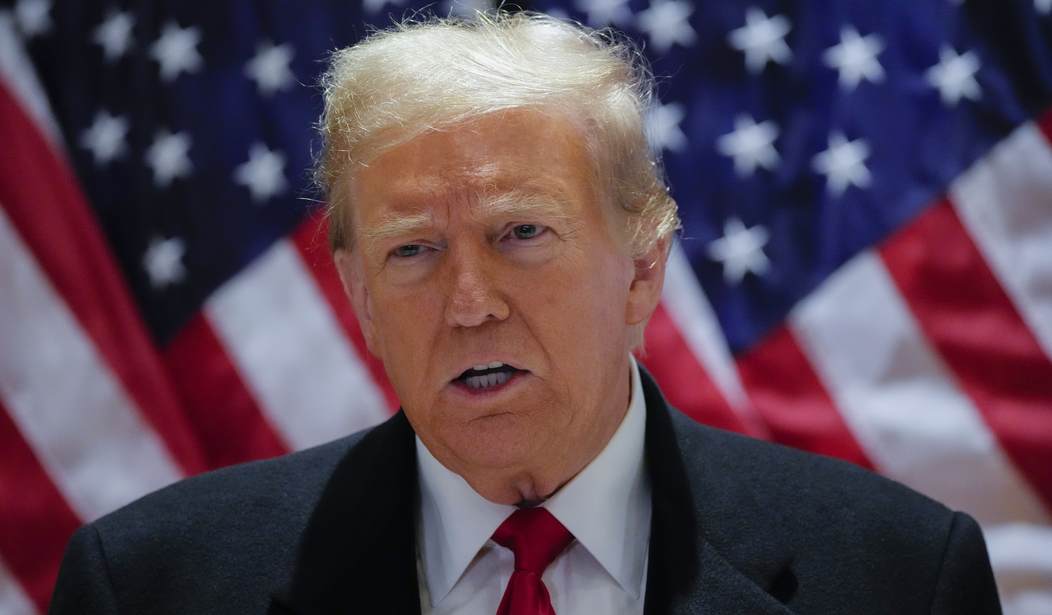Lawyers for former President Donald Trump are seeking to dismiss the Georgia RICO case on First Amendment grounds, arguing that the presumptive 2024 Republican nominee's alleged actions were constitutionally protected political speech.
Trump's lead defense attorney Steve Sadow delivered the argument in court Thursday, where he challenged the grand jury indictment on grounds that the charges brought against his client, "[e]very single alleged overt act listed and count charged," attempt to "criminalize" free speech and "expressive conduct," which are, otherwise, protected under the First Amendment.
Good morning from Fulton County Superior Court. Today, there is a hearing on a First Amendment, as-applied challenge to the 2020 election subversion indictment. The claim is that the overtures made by Trump to state officials is core political speech that can't be prosecuted.
— Anthony Michael Kreis (@AnthonyMKreis) March 28, 2024
"The speech Fulton County prosecutors seek to criminalize is precisely the kind of core political speech the Founders envisioned when carefully crafting those freedoms to ensure that, for the rest of time, U.S. citizens would not fall prey to mass repression and the manipulation or suppression of information as a means of control," Sadow wrote in a December court filing.
By "affording the broadest protection to political speech and discussion regarding governmental affairs," the First Amendment "not only embraces but encourages exactly the kind of behavior under attack in this Indictment," Trump's defense lawyer explained in the brief.
In response, the prosecution claimed that Trump's "crimes, as alleged in the indictment, are not protected political speech and are not shielded from prosecution by the First Amendment." The indictment is "based on criminal acts, not speech," they wrote.
Recommended
The DA's response? Speech attendant to conduct is often part of criminal charges. False claims alone are protected free speech but using them to induce fraud/corrupt acts is unlawful. Trump could complain publicly but he could not use fictitious claims to overturn the election.
— Anthony Michael Kreis (@AnthonyMKreis) March 28, 2024
At the Atlanta courthouse, Sadow said the election interference charges target the content of Trump's speech in the aftermath of the 2020 presidential race. The state is painting the crime as "We have a goal: Steal the election in an unlawful fashion," he said.
"I say change that for a second to 'Legitimate concern about the validity of the election.' If that was the way you focused on it, would what President Trump said on those counts be protected speech? And the answer is: It has to be," Sadow ventured.
The "only reason it becomes unprotected" is when the state says it's false, Sadow said. "The only thing that makes it fraudulent is the state saying it's false." This is "a core political value being addressed—elections and campaigning," Trump's counsel added.
"That's the essence of what we have right here," Sadow said. "That's the facts that have been alleged. Essentially, the state’s position is: Because, as alleged, what President Trump said, speech-wise, or expressed either through his speech or his conduct, which is still freedom of expression, because that's false, in the eyes of the state, it's lost all protections of the First Amendment."
"If anything, under the circumstances, it needs more protection, not less protection," Sadow continued.
There is some tension that Steve Sadow is pointing out between protecting pure political speech surrounding an election like Trump tweeting about the 2020 election and enforcing state election law statutes that may use otherwise protected speech to demonstrate a criminal intent.
— Anthony Michael Kreis (@AnthonyMKreis) March 28, 2024
When dealing with political speech, Sadow advised "pushing forth a counterview of truth—not prosecuting the speechmaker or the person who is articulating his political views." In Trump's Georgia case, "we've done just the opposite," Sadow said. "We've decided that because those views are unpopular, and in the state's opinion false, we must prosecute them to stop them from happening again, which is the essence of why it's unconstitutional as applied because that's not what the law says."
"Take out the political speech, no criminal charges. Political speech disagreed with—basis for all charges," Saddow summarized.
Fulton County prosecutor Donald Wakeford urged the court to shoot down Saddow's challenge, claiming that the indictment doesn't criminalize Trump's speech or expression as expressed, but that both were conducted in furtherance of criminal activity.
While the DA wants the challenge to come only after a jury renders a verdict as a finder of fact, Donald Wakeford for the DA acknowledges that Judge Chutkan did in fact rule in the Special Counsel case based on the facts alleged within the four corners of the federal indictment.
— Anthony Michael Kreis (@AnthonyMKreis) March 28, 2024
Trump is "not being prosecuted for lying," Wakeford said. "He's being prosecuted for lying to the government, an act which is illegal because it does harm to the government." For example, Wakeford further argued that Trump's filing false documents charge means the defendant made false statements to a court, "which does harm to the judicial system." These statements were "part of criminal conduct that is larger than just the false statement on its own," Wakeford said, adding: It's "not just that he lied over and over and over again [...] it's that each of those was employed as part of criminal activity with criminal intentions."
Wakeford said Sadow wants to frame the indictment as "It's all speech [...] he [Trump] was just a guy asking questions [...] and not part of an overarching criminal conspiracy trying to overturn election results for an election he did not win by violating the RICO statute, by making false statements to the government, by filing false documents, by impersonating officers, and doing a whole host of other activities harmful, in addition to the falsity of the statements employed to make them happen."
On behalf of the state, RICO expert John Floyd refuted Sadow's 1A argument: "It could be legal conduct. It could be First Amendment-protected conduct that also shows there's a conspiracy in operation, and as long as it serves that purpose, it's fine."
"The purpose of an overt act is to show the conspiracy is in operation. It is not a separate crime; it doesn't have to satisfy the elements, doesn't have to be pled with that level of detail [...] and so to say we can't mention this particular act or this particular conduct because it's not a crime or it's protected by the First Amendment, the answer to that is, actually, so what?" said Floyd.
John Floyd for the DA: not every overt act in a RICO indictment must be a crime but to show "a conspiracy is in operation." Legal conduct, even First Amendment protected conduct, can show a conspiracy is in operation.
— Anthony Michael Kreis (@AnthonyMKreis) March 28, 2024
Thursday's hearing was held before Judge Scott McAfee, who earlier ruled in favor of keeping Fulton County District Attorney Fani Willis on the Trump case after she was caught having an affair with then-special prosecutor Nathan Wade, whom she hired to helm the prosecution. Since she appointed him, Wade was paid more than $650,000 for his work on the Trump case and then took Willis on a globetrotting spending spree. Therein lay the financial benefit that the defense said was cause for Willis's removal.
Ultimately, McAfee decided not to disqualify Willis, allowing her to choose between firing Wade and stepping aside herself to resolve an "appearance of impropriety" that lingered in the absence of the DA's disqualification. Within hours, Wade resigned in order to keep the Trump case on track after it was derailed for months by the bombshell prosecutorial misconduct claims.
At the conclusion of Thursday's hearing, McAfee didn't announce when he would have a ruling on the dismissal matter. The judge is known for not ruling immediately from the bench and typically takes time to mull over issues before issuing written court orders.
McAfee is forging ahead with the pre-trial proceedings despite the defense planning on taking the non-disqualification decision to the Georgia Court of Appeals. The judge gave the defense permission to seek a review of his ruling at the appellate level, but indicated he intends to address any outstanding motions in the meantime, pending the appeals court's assessment.

























Join the conversation as a VIP Member